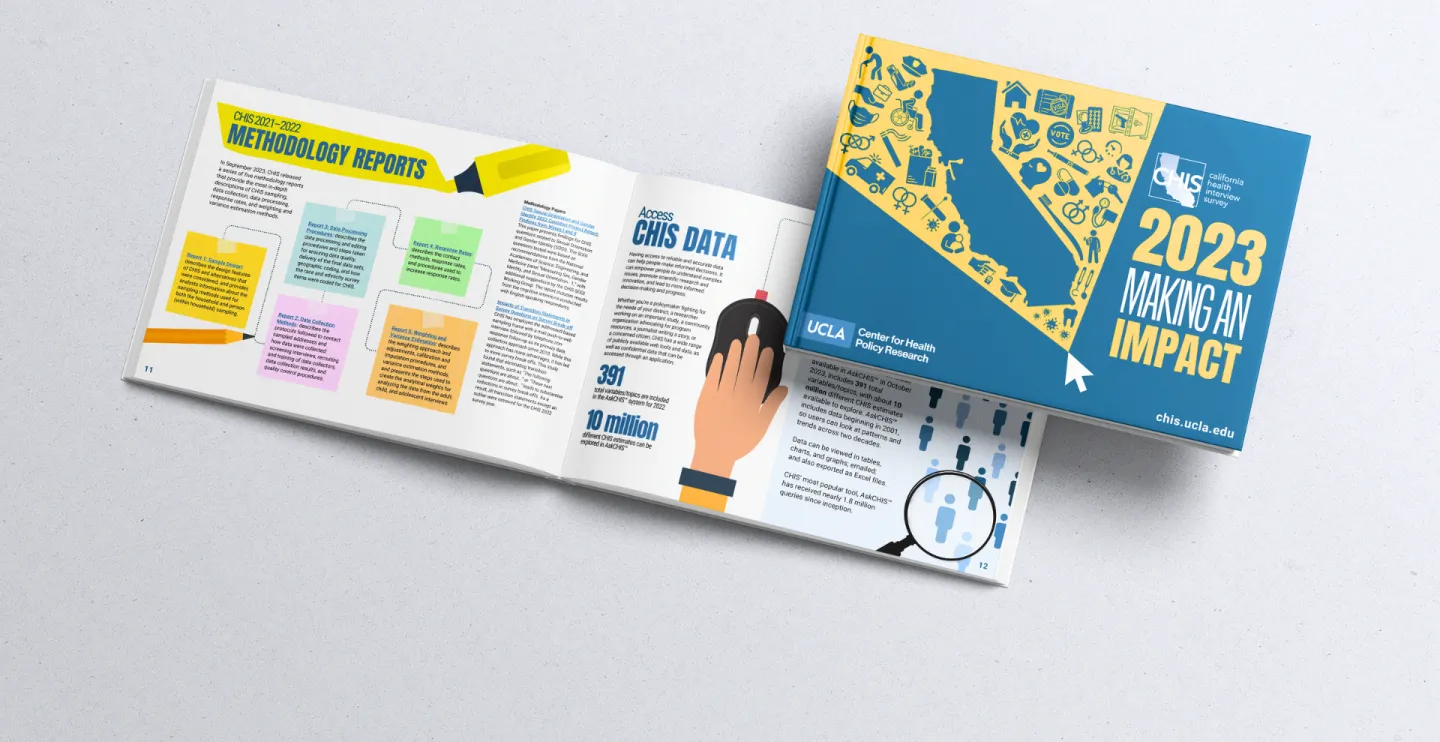Summary
The 2023 California Health Interview Survey (CHIS) Making an Impact report recognizes not just the work we do, but the people who use our data — our funders and collaborators, researchers, health departments, government agencies, journalists, nonprofit organizations, and community groups — all who aim to make the people of California healthier and stronger.
The report includes:
- Publications: From housing instability to gun violence, mental health to telehealth, you can explore some of the CHIS policy briefs, fact sheets, and reports that shine a light on the unique health and health care needs of California’s diverse populations.
- Annual CHIS Data Release: The 2022 CHIS revealed that Californians experienced an increase in food insecurity, hate incidents, and trouble accessing health care.
- CHIS Preliminary COVID-19 Estimates Dashboard: Find monthly estimates of the ongoing impact of COVID-19 on Californians.
- CHIS Journal Articles and Policy Reports: The use of CHIS data in academic and policy circles has not only expanded our understanding of health disparities and trends but has also played a pivotal role in shaping evidence-based policies that address the unique health care needs of communities across the state.
- CHIS in Legislation: From reducing the burden of medical debt to expanding access to food benefits for all undocumented immigrants, CHIS data are used to impact policy.
- Presentations and Events: UCLA CHPR staff used CHIS data in 60 presentations and events across the world.
Notable numbers
- 107,000+ queries were made through our free online tools, AskCHIS™ and AskCHIS™ Neighborhood Edition (NE) in 2023.
- 465+ media stories featured or cited CHIS data in 2023.
- Nearly 100 publications featured or cited CHIS data in 2023 — from peer-reviewed journal articles to policy briefs to government reports.
- There are currently 391 total variables and topics and 10 million different estimates that can be explored in AskCHIS™.
Take a look at the 2023 CHIS Making an Impact to see how, and by whom, our data were used.
Read the publication




